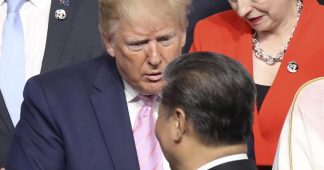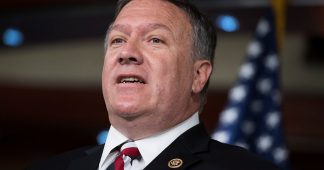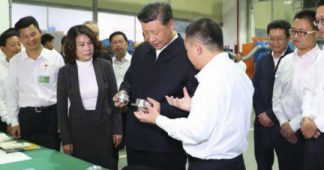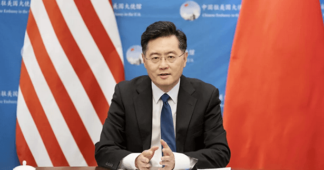Originally published:
Nikkei Asia by Katsuji Nakazawa
August 26, 2021
One cannot overstate the shock that has rippled through Hangzhou, the capital of Zhejiang Province, as well as across China.
On Saturday, China’s top anti-graft agency said the city’s top official, Chinese Communist Party Secretary Zhou Jiangyong, is under investigation for suspected serious violations of party disciplinary rules and laws.
The 53-year-old was thought to be an “insider” of President Xi Jinping’s powerful Zhejiang faction, also known as the “New Zhijiang Army.”
While details of the allegations against Zhou remain unclear, officials, pundits and China watchers immediately connected the dots.
As regular readers of this column are well aware, the city of Hangzhou and the province of Zhejiang are special for two reasons.
For one, Hangzhou is Xi’s political base. As Zhejiang’s top official, he lived in the scenic capital — known for the UNESCO World Heritage-cited West Lake — for many years. The current top officials of China’s main municipalities such as Beijing, Shanghai and Chongqing are all Xi’s subordinates from his time in Zhejiang; they form the New Zhijiang Army.
Zhou Jiangyong quickly rose through the ranks in Zhejiang and was considered close to Xi’s inner circle.
Some political pundits had predicted that, as a promising next-generation leader in the Zhejiang faction, Zhou would soon be promoted to the governorship of another province.
Second, Zhejiang Province is known as the birthplace of the country’s private companies. The region has achieved self-sustaining economic development that does not rely on state-owned companies or bureaucrats.
Chinese e-commerce giant Alibaba Group has its headquarters in Hangzhou.
Here may lie a clue to Zhou’s investigation. Zhou is close to Alibaba founder Jack Ma Yun. As Hangzhou’s economy relies heavily on Alibaba, it is not surprising that Zhou, the city’s top official, would be in close contact with Jack Ma.
On Aug. 17, four days before the announcement of Zhou’s probe, Xi delivered a key speech that will have a significant impact on the future course of China.
The address at the party’s Central Committee for Financial and Economic Affairs was Xi’s first public appearance after a summer break during which he and fellow incumbent leaders are thought to have met retired officials at the annual closed-door “Beidaihe meeting” at the seaside resort in Hebei Province.
Xi used the term “common prosperity” as many as 15 times. It was not hard to imagine that the leader who doubles as the party’s general secretary received a stamp of approval to push the policy at Beidaihe.
In the name of common prosperity, Xi vowed to expand the size of the middle-income group, increase earnings of the low-income group and “adjust excessive incomes,” including through the three-stage income distribution and tax system.
These measures are likely to become a basic policy going forward as the Xi administration keeps an eye on the sixth plenary session of the party’s 19th Central Committee this autumn and subsequently the party’s next quinquennial national congress in the fall of 2022.
Hints at targeting the rich run counter to former paramount leader Deng Xiaoping’s policy of “letting some people get rich first” and signal a sharp left turn toward a distinctly socialist China.
The important point is that Zhejiang has been designated as the model area to achieve this common prosperity.
Xi knows Zhejiang well and Hangzhou in particular. He likely envisions a scenario in which the public realizes that dominant private companies no longer rule. This will likely take place in Hangzhou first and then across the country.
That is why Zhejiang, home to many large private companies, was chosen over Beijing, the stronghold of state-owned companies, as the model area for common prosperity.
In going after the rich, it cannot be that the local Hangzhou government colludes with large target companies.
The crackdown on top official Zhou, then, was likely an attempt to demonstrate the seriousness of the return to socialism. While the purge of a fellow insider might be painful for the faction, it was a necessary sacrifice.
For Zhou’s part, he miscalculated the suitable distance between political leaders and private companies.
A Hong Kong newspaper reported allegations that the former top Hangzhou official’s family had acquired shares in Ant Group, Alibaba’s financial arm, before the company’s planned initial public offering. Ant Group issued a statement on Sunday night, a day after the announcement of the probe, categorically denying the Zhou family’s alleged purchase of company shares.
Ant Group “strictly followed laws and regulations” in an “open and transparent” IPO process, the company said. It added,
The rumors about [a] certain person taking shares in the company are false, not to mention sudden share buying or refund.
Alongside the investigation into Zhou, the party’s Central Commission for Discipline Inspection announced it has launched a widespread campaign to root out inappropriate government-business ties. Some 25,000 officials will be subject to a probe.
The announcement signals that no stone will be left unturned. The investigation will cover not only local bureaucrats but also their spouses, their children, their children’s spouses and former local bureaucrats who retired within the past three years.
“Zhejiang is a region that has the most developed private sector-led economy,” a Chinese businessman familiar with the local situation explained. “There are countless families that have, say, an older brother working as a bureaucrat and a younger brother being a hugely successful business executive. If government-businesses ties are scrutinized, problems big and small, including those involving family members, will certainly emerge.
About five years ago, Xi began advocating for a “new type of government-business relations.” This means that while listening to the voices of struggling private companies with familiarity and seriousness, and while resolving problems, politicians must maintain their purity and not take advantage of their power for personal gain.
To be sure, the remarks are hard to object to. But how will China “adjust excessive incomes” while maintaining the vigor of the private sector over the medium to long term?
It seems easier said than done.
* Katsuji Nakazawa is a Tokyo-based senior staff writer and editorial writer at Nikkei. He spent seven years in China as a correspondent and later as China bureau chief. He is the 2014 recipient of the Vaughn-Ueda International Journalist prize for international reporting.
Published at mronline.org
We remind our readers that publication of articles on our site does not mean that we agree with what is written. Our policy is to publish anything which we consider of interest, so as to assist our readers in forming their opinions. Sometimes we even publish articles with which we totally disagree, since we believe it is important for our readers to be informed on as wide a spectrum of views as possible.











